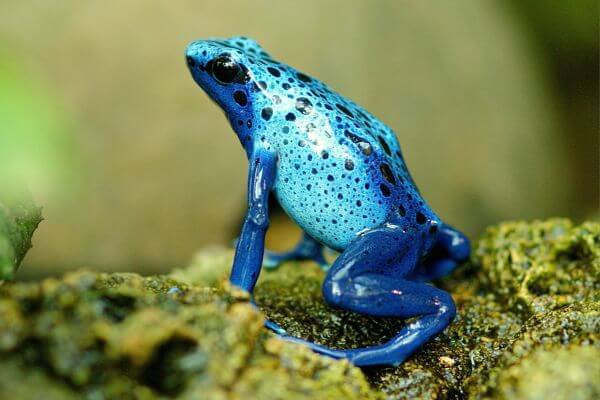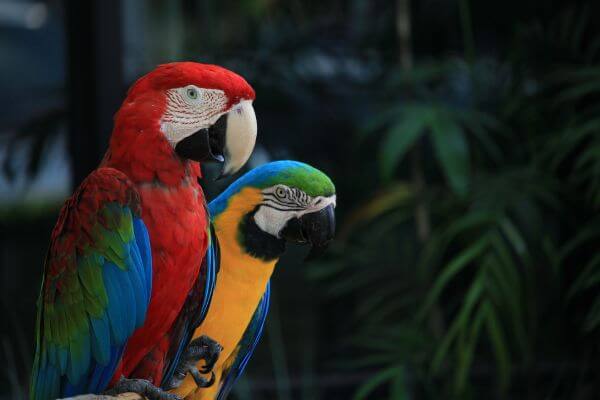Explore pet exotic animals and fascinating breeds that make great pets.
Curiosities about exotic animal breeds

Pet exotic animals offer a unique experience. Many people seek companion animals that stand out for their unusual appearance and behavior. For example, the axolotl, a Mexican amphibian, is known for its ability to regenerate limbs. It is an excellent pet for those who enjoy observing unique behaviors.
Additionally, ferrets are playful and intelligent animals. They require a lot of interaction and environmental enrichment to stay happy. With proper diet and specific care, they can be extremely fun and loving companions. It’s important to provide a safe space for them to explore.
Another fascinating example is the leopard gecko. They are relatively easy to care for and have a gentle personality. These reptiles are ideal for beginners in the world of exotic animals. However, like any animal, they need a well-controlled environment and proper nutrition to thrive.
Positive training for exotic animals

Positive training is effective for any animal, including exotics. Using reinforcements such as treats or toys helps teach desired behaviors. This method creates a positive association, encouraging the animal to repeat the behavior. It is crucial to be consistent and patient, as each animal learns at its own pace.
For example, ferrets can be trained to use a litter box. Rewarding correct behavior with treats makes learning faster and more effective. Additionally, it’s important to have a safe and stress-free environment. This facilitates the training process, increasing the animal’s confidence.
For reptiles, such as leopard geckos, positive reinforcement can be used to facilitate handling. Teaching the gecko to accept handling is essential for its health and well-being. Rewarding with food after successful handling is an effective technique. This creates a positive association with human touch.
Essential care for domestic exotic animals
Exotic animals require specific care to ensure their well-being. Each species has particular needs for habitat, food, and interaction. For example, axolotls need an aquarium with clean, cold water. They also require a diet rich in protein, such as worms and small fish.
For ferrets, an enriched environment with toys and spaces to explore is essential. They are very active animals and need constant stimulation. Their diet should be rich in protein and fats, avoiding processed foods. Consulting a specialized veterinarian is always recommended for specific guidelines.
Leopard geckos need a well-ventilated terrarium with controlled temperature. It is important to provide hiding places and suitable substrates. The diet should include live insects, supplemented with vitamins and calcium. Ensuring a source of clean water is essential for maintaining the reptile’s health.
Pet exotic animals and behavior
Pet exotic animals can exhibit fascinating behaviors. Understanding these behaviors helps create a more suitable environment. For example, axolotls are nocturnal and more active at night. They can also be observed regenerating parts of their bodies, an impressive feature.
Ferrets are known for their curiosity and energy. They love to explore and often steal small objects to play with. Knowing these behaviors allows owners to provide a safe and enriching environment. This helps prevent behavioral problems and promotes the animal’s well-being.
Leopard geckos have calmer habits and are generally gentle. They like to hide during the day and come out at night to feed. Understanding this natural behavior is crucial for providing a suitable habitat. This includes offering hiding places and appropriate lighting conditions.
Benefits of having exotic animals
Having exotic pets brings various benefits. They offer a unique and educational experience. For example, caring for an axolotl can teach about biology and aquatic ecosystems. Observing their regeneration abilities is particularly fascinating and educational.
Additionally, ferrets are extremely social and interactive animals. They can provide hours of entertainment with their playfulness and antics. Constant interaction with these animals can improve the mood and reduce stress for owners. This contributes to a happier and livelier home environment.
Finally, leopard geckos are great for beginners in the world of reptiles. They require less daily care compared to other animals. Having an exotic animal also encourages responsibility and commitment. Caring for their specific needs can be a rewarding experience.
Choosing the ideal exotic animal
Choosing the ideal exotic animal requires research and planning. Each species has its own needs and behaviors. It is important to consider the time and resources available. For example, axolotls need a well-maintained aquarium and time dedicated to cleaning and feeding.
Ferrets require a lot of interaction and space to play. Assessing whether you can provide the necessary environment is crucial. They also need a specific diet and regular visits to the veterinarian. Ensuring that you can meet these needs is essential for the animal’s well-being.
Leopard geckos are a popular choice because they are easier to care for. They require a suitable terrarium and regular feeding with insects. It is important to learn about their temperature and humidity needs. Making an informed choice ensures that you and your new pet have a harmonious coexistence.
Legal requirements for owning exotic animals
Before acquiring an exotic animal, check the legal requirements. Many species are regulated by specific laws. For example, some countries require licenses to keep certain reptiles. Knowing and complying with these laws is crucial to avoid legal problems and ensure the animal’s well-being.
Ferrets, for example, are allowed in many places, but some regions have restrictions. Familiarizing yourself with local regulations helps avoid setbacks. Additionally, obtaining animals from legal and responsible sources is essential. This ensures that the animal has not been illegally captured or mistreated.
For axolotls, it is important to check if they are allowed in your area. They may be considered protected species in some locations. Consulting a specialized veterinarian and a reputable breeder is essential. Compliance with the laws ensures a safe and ethical experience when owning an exotic animal.
Veterinary care for exotic animals
Exotic animals require specific veterinary care. Finding a specialized veterinarian is essential to ensure your pet’s health. For example, axolotls may need specific care to keep the water clean and prevent diseases. Veterinarians specializing in aquatic animals are the most suitable.
Ferrets also require regular veterinary attention. They need vaccines, parasite control, and check-ups. Consulting a veterinarian familiar with ferrets helps detect health problems early. This ensures that your pet has a long and healthy life.
Leopard geckos may need vitamin and calcium supplements. Veterinarians specializing in reptiles can provide guidance on diet and suitable environment. They can also help prevent common reptile diseases. Maintaining a regular relationship with a specialized veterinarian is crucial for the well-being of your exotic animal.
Suitable environments for exotic animals
Creating a suitable environment is crucial for the well-being of exotic animals. Each species has specific habitat requirements. For example, axolotls need aquariums with clean, cold water. The temperature should be maintained between 14 and 20 degrees Celsius to prevent thermal stress.
Ferrets need a safe and enriched space. They enjoy exploring and playing, so offering toys is essential. Additionally, ensuring that there are no dangerous objects within reach is important. Creating a safe environment prevents accidents and promotes healthy behavior.
Leopard geckos need well-ventilated terrariums with controlled temperature. Providing hiding places and suitable substrates is fundamental. Lighting should simulate the natural day-night cycle. Creating a habitat that mimics the lizard’s natural environment improves its health and well-being.
Proper nutrition for exotic animals

Proper nutrition is vital for the health of exotic animals. Each species has specific dietary needs. For example, axolotls require a diet rich in proteins. They feed on small fish, worms, and specific amphibian pellets. Offering a varied diet keeps the animal healthy.
Ferrets need a diet rich in proteins and fats. Avoiding processed foods is essential for their health. They can be fed with specific ferret food and raw meats. Consulting a veterinarian helps ensure that the diet is balanced and nutritious.
Pet exotic animals like leopard geckos primarily feed on live insects. Crickets, worms, and larvae are good options. It is important to supplement the diet with vitamins and calcium. Offering a balanced diet helps prevent nutritional deficiencies and promotes the healthy growth of the reptile.
Environmental enrichment for exotic animals

Environmental enrichment is essential for the well-being of exotic animals. Providing mental and physical stimulation prevents boredom and undesirable behaviors. For example, axolotls benefit from hiding spots and aquatic plants. This simulates their natural habitat and offers places to hide.
Ferrets need a variety of toys and space to explore. Tunnels, balls, and interactive toys keep these animals active and happy. Offering new experiences regularly is important for their development. Enriching the environment for ferrets improves their quality of life and well-being.
Leopard geckos also benefit from an enriched environment. Placing rocks, branches, and hiding spots in the terrarium provides stimulation. This encourages natural exploration and hunting behaviors. Ensuring a varied and interesting environment helps keep the lizard healthy and active.
Fascination and Responsibility with Exotic Animals
Having exotic pets is a fascinating and educational experience. These animals, with their unique characteristics, enrich our lives and teach us about biodiversity. It is essential to understand the specific needs of each species and provide a suitable and enriched environment.
Positive training is a valuable tool for ensuring the well-being of these animals. Using positive reinforcements, such as treats and toys, helps teach desirable behaviors and strengthens the bond between the owner and the pet. Additionally, ensuring proper nutrition and regular veterinary care is crucial for the health of exotic animals.